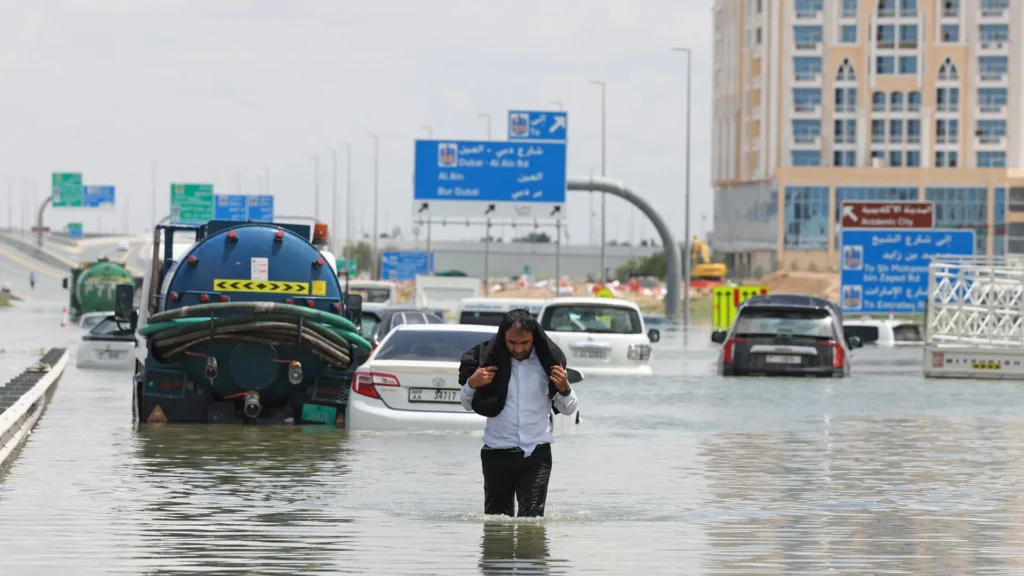Dubai Hit by Worst Flooding in Decades Amid Extreme Rainfall Due To Climate Change and Not Cloud Seeding, Scientists

Dubai Hit by Worst Flooding in Decades Amid Extreme Rainfall Due To Climate Change and Not Cloud Seeding, Scientists
Dubai experienced its worst flooding in over 70 years due to extreme rainfall late Monday and Tuesday. The city, known for its advanced infrastructure amid arid surroundings, faced severe inundation. Many speculated that cloud seeding might have caused the intense rainfall, but climate scientists emphasized the link to climate change.
Friederike Otto, a senior lecturer at Imperial College London’s Grantham Institute, dismissed the notion that cloud seeding triggered the heavy rainfall. She stated that such extreme weather events are increasingly common due to climate change. Otto explained that as the atmosphere warms, it can hold more moisture, leading to heavier rainfall globally.
According to Otto, the heavy rainfall in Dubai was not solely due to cloud seeding, as the atmosphere already contained sufficient moisture. She cautioned that without significant action to reduce greenhouse gas emissions, such events would become more frequent and severe.
Former earth sciences ministry secretary and climate scientist M Rajeevan echoed these sentiments, labeling the Dubai rain as a clear indicator of climate change. He explained that as the planet warms, heavy rainfall events become more common. Rajeevan attributed the heavy rains to a low-pressure weather system and an anticyclone over the Arabian Sea, which transported moisture into the region.
Rajeevan noted that predictive models accurately forecasted the event nearly 72 hours in advance, underscoring the growing understanding of the influence of climate change on weather patterns.









